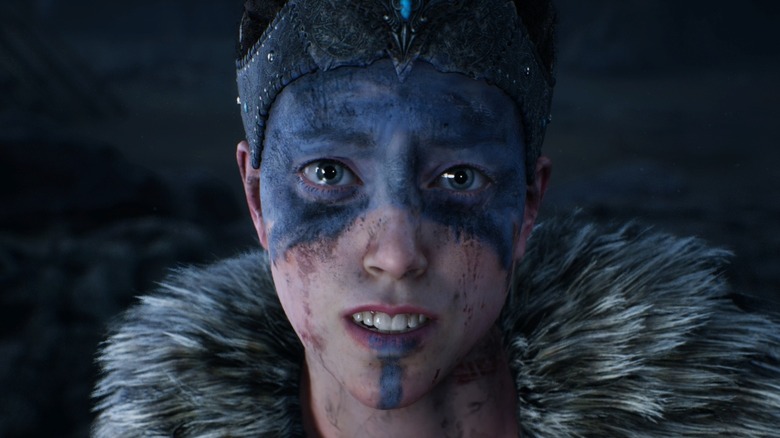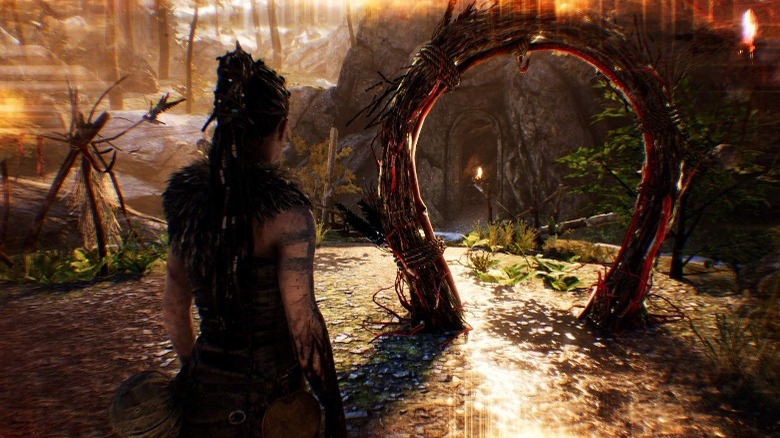How Hellblade: Senua's Sacrifice Saved One Fan's Life
"Hellblade: Senua's Sacrifice" is arguably one of the best portrayals of mental illness in video games. It follows Senua as she navigates a world inspired by Norse and Celtic mythology in order to rescue the soul of her dead lover from the pits of the underworld. The game ingeniously explores mental illness by using the fantasy elements of the game as auditory and visual simulations of Senua's symptoms. Some of these get pretty experimental and make for some truly terrifying moments.
The developer, Ninja Theory, achieved this by hiring Paul Fletcher — the Bernard-Wolf Professor of Health Neuroscience at the University of Cambridge — as a consultant on the game in order to ensure that the portrayal was as accurate as possible. Some have found this depiction to be a bit problematic, but it seems the vast majority of critics and players alike have found "Senua's Sacrifice" to be a success. Many have even found the game to be life-changing.
Professor Fletcher gave a keynote address at The International Game Summit in 2019, during which he showcased a letter he received from a fan with schizophrenia. She explained that she had never seen an accurate representation of hallucinations in media before and that it helped her to show those close to her how scary they can feel. "It is something that cannot be explained," she stated, "but rather felt." But perhaps none have been affected more directly by the game than a fan named Jessica and her son.
One fan sought help after playing Hellblade
A fan by the name of Jessica Prime sent a tweet back in August 2018, thanking the developer for creating the game that helped her son decide to seek help when he was having suicidal thoughts. "Thank you, @NinjaTheory," she wrote, "for 'Hellblade: Senua's Sacrifice.' It saved my son's life. After playing it through, he asked to go to the hospital for help. He couldn't take everything he'd been dealing with [and] had a plan to kill himself. The game changed his plan."
The revelation of her son's condition might appear bittersweet, but Jessica seemed genuinely grateful that "Hellblade" inspired her son to seek the help he needed. "My boy is coming home from the hospital at the end of the week!" she stated nine days later in a subtweet, "I have missed him so much." Three years after that, she posted another tweet of the two of them celebrating his 20th birthday with some "Halo" and cake. It seems video games are still an important part of his life.
Now, "Hellblade 2" is on its way and Ninja Theory is currently working on a new undertaking called The Insight Project, which plans to focus on discovering different ways to use video game technology in order to help treat and reduce mental suffering. With any luck, this new game can be just as helpful to fans who are struggling with talking about mental health.
If you or anyone you know is having suicidal thoughts, please call the National Suicide Prevention Lifeline at 1-800-273-TALK (8255).


